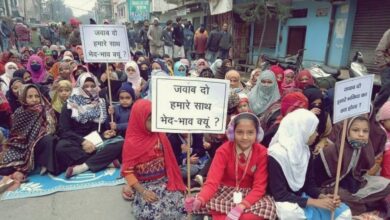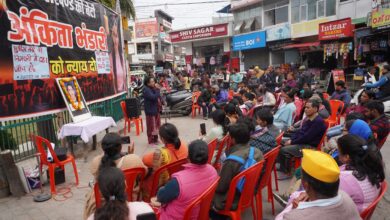Mahavir Tyagi-a rare breed of fearless, honest leader of yesteryears
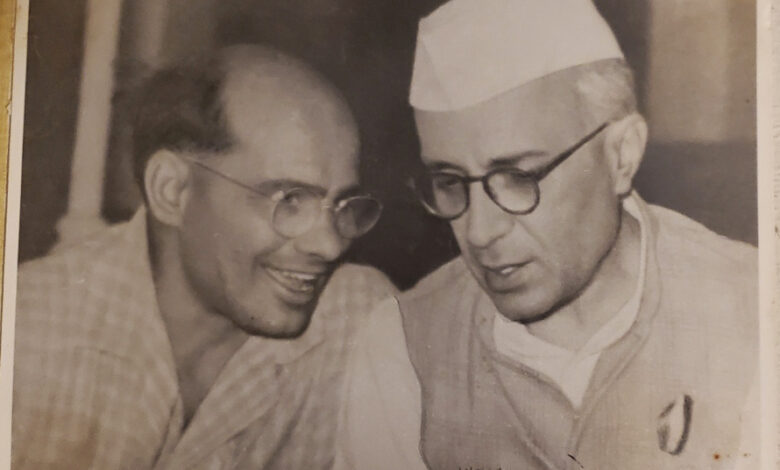
Mahavir Tyagi-a rare breed of fearless, honest leader of yesteryears
S.M.A.KAZMI
Dehradun, Jan 5
A plaque in memory of Mahavir Tyagi, a Gandhian Congress stalwart of pre and post independent India was installed at village Rattangarh in district Bijnore in Uttar Pradesh at the start of his 125th birth anniversary by Mahavir Tyagi Foundation for Political and Economic Decency on December 31, 2023 at a quiet ceremony, as per his grandson Anil Nauriya, a Supreme Court lawyer.
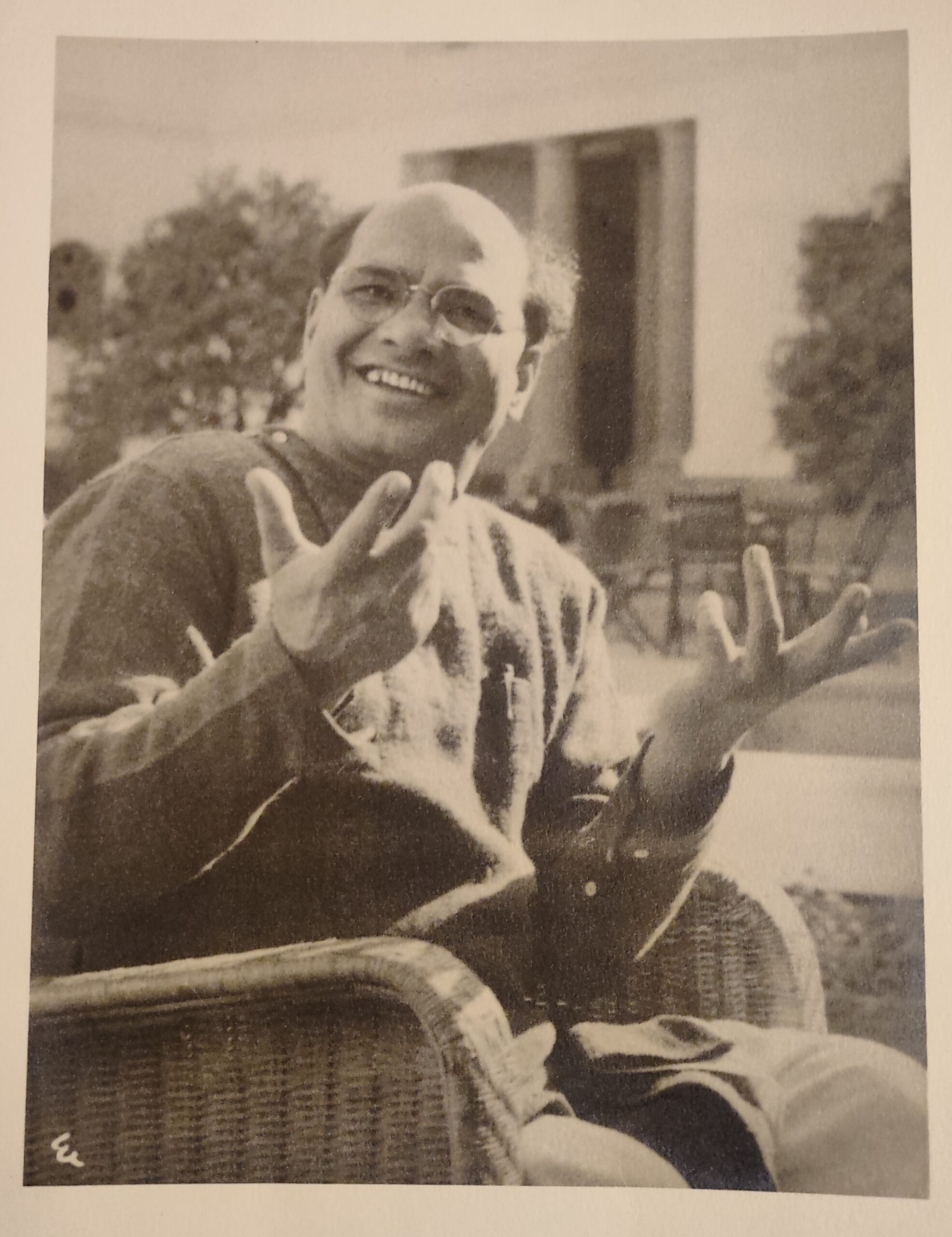
Ironically, not many in the present younger generation know about Mahavir Tyagi, a tall Gandhian freedom fighter, an ex-servicemen, a former legislator, a member of the Constituent Assembly, a member of the Indian Parliament, a Union Minister under two Prime Ministers, a fearless speaker, a tireless political worker working for peasants and labourers, an epitome of secularism, a writer, a poet and a journalist-a breed of rare honest politician difficult to find nowadays.

Sadly, not many in Dehradun and Uttarakhand particularly, the Congress workers and leaders remember Mahavir Tyagi and his contribution in the development of the area in the pre and post partition period. He had remarkable contribution as a member of the Lok Sabha from Dehradun and as a Union Minister after the independence of the country. But, not once, he was remembered after the formation of the separate state of Uttarakhand in 2000, despite the fact that Congress ruled the state twice from 2002 till 2007 and from 2012 till 2017.
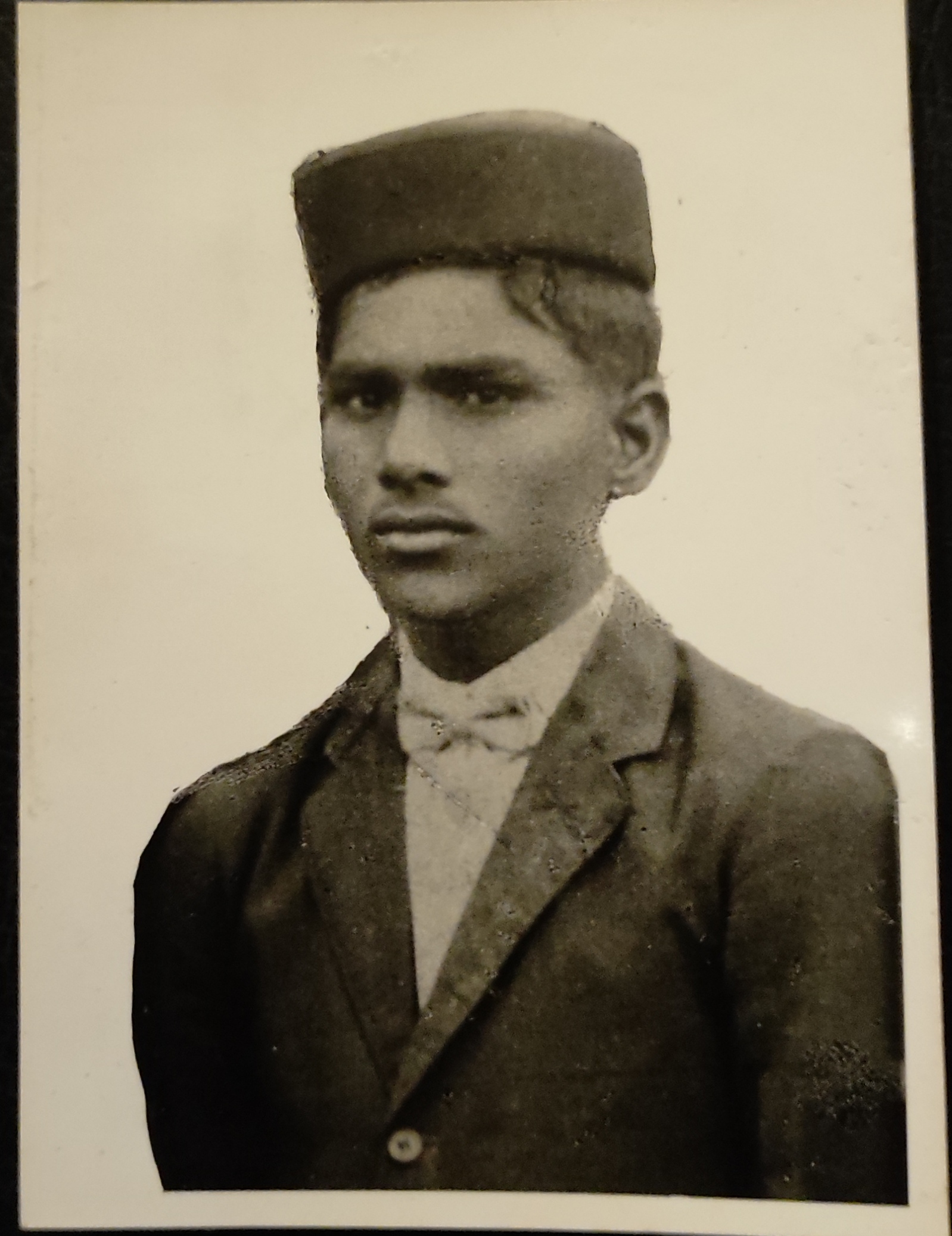
Mahavir Tyagi was born on December 31, 1899 at Dabrasi, presently in Amroha district of Uttar Pradesh at her maternal place. His father Shivnath Singh, a Brahmin by caste was a respected landlord of Rattangarh village of Bijnore district. He had his schooling from Nanak Chand High School, Meerut. He joined the British Indian Army under emergency commission for the sons and wards of Indian Zamindars and landlords before the First World War. He served as an officer in eastern Iran, Mashhad and Ashqabad for three years and returned back to Quetta in Balochistan.
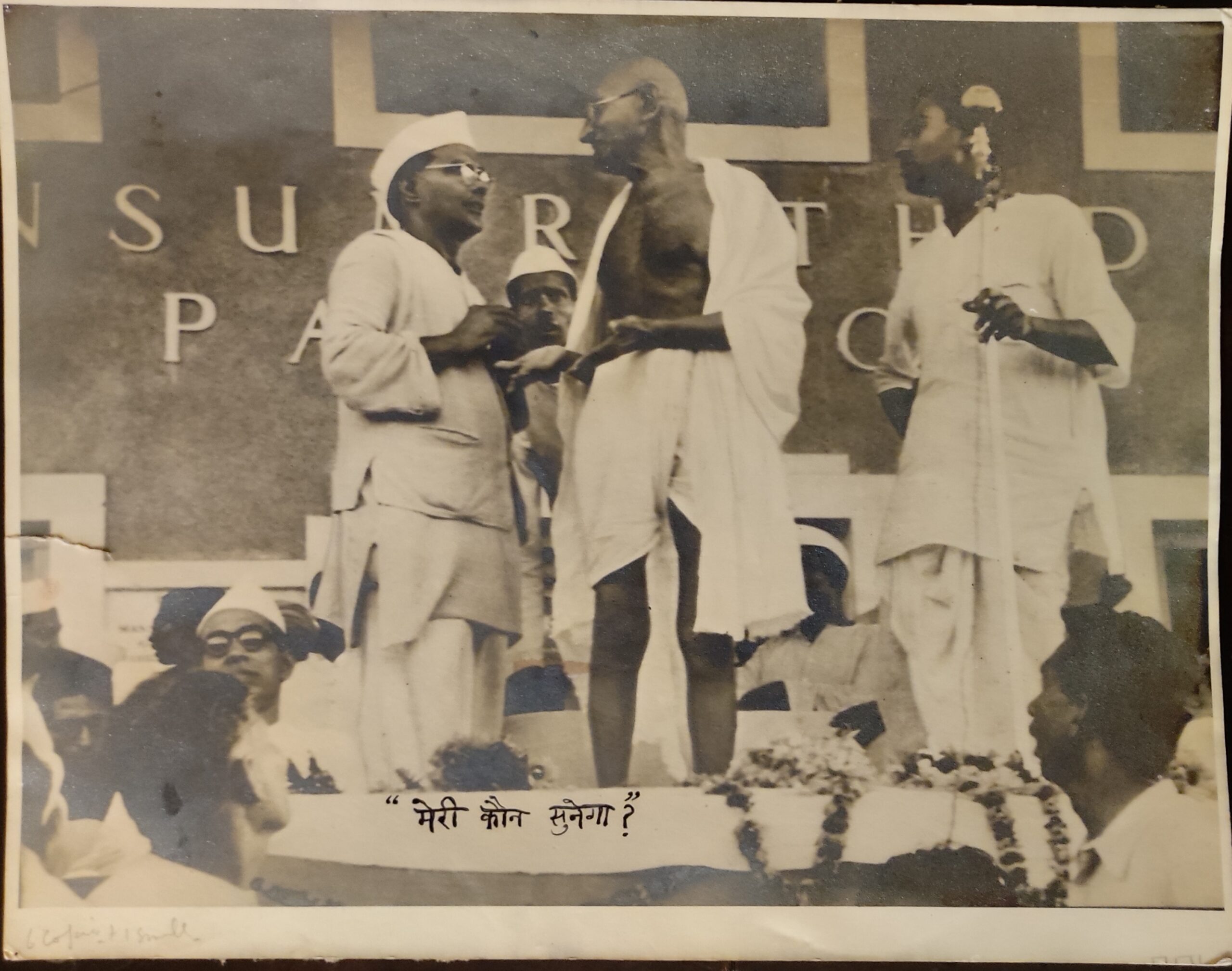
He was influenced by the appeal of Mahatama Gandhi for boycott of British jobs, titles and goods at Quetta. The jallianwala bagh massacre of April 13,1919 had a deep impact on him and he applied for leave and while on his way back home, resigned from his army job. He wrote against the massacre in his letter which was considered seditious by the Britishers. He arrested on his arrival at Bijnore railway station, court martialled and sacked from army with forfeiture of his pay and emoluments. He enrolled as a coolie at Haridwar railway station with an intention to influence the commoners about the Gandhian way of protest against British imperialism. His first client as a Coolie was famous lawyer Babu Vishwamitter of Bijnore, who took him to his place at Bijnore from where he brought out a newspaper titled ‘Gareeb”. He was married to Sharmada hailing from Rajpur Navada village of Bijnore on July 26, 1925.
He became a stanch Gandhian and met him at Anand Bhawan, Allahabad. Interestingly, Mahatama Gandhi who had heard about him and was fascinated by his enthusiasm and energy asked him whether he had ten rupees. Mahavir Tyagi readily gave him his ten rupees note. Mahatama asked Mahavir Tyagi to buy a ‘Dhol’(drum) from that amount and beat it to propagate the message of the freedom fighters. Mahavir Tyagi by beating his ‘Dhol’ (drum) used to attract people to his message. Later, he bought a loud speaker which he used to spread the message of Gandhi throughout north India.

Mahavir Tyagi, a tireless and fearless political worker was imprisoned for more than eleven years in various jails namely Bijnore, Nagina, Meerut, Faizabad, Dehradun, Naini, Agra and Bulandshahar.
During the non-co-operation movement in 1921 Mahavir Tyagi based at Bijnor district was tried, inter alia, for sedition under Section 124A of the Indian Penal Code at Bulandshahr in the United Provinces, later known as Uttar Pradesh. In the course of the trial, he was assaulted at the behest of the British Magistrate, W.E.J.Dobbs. (See Independent, 9 October 1921, Leader, 10 October 1921 and Young India, 13 October 1921).
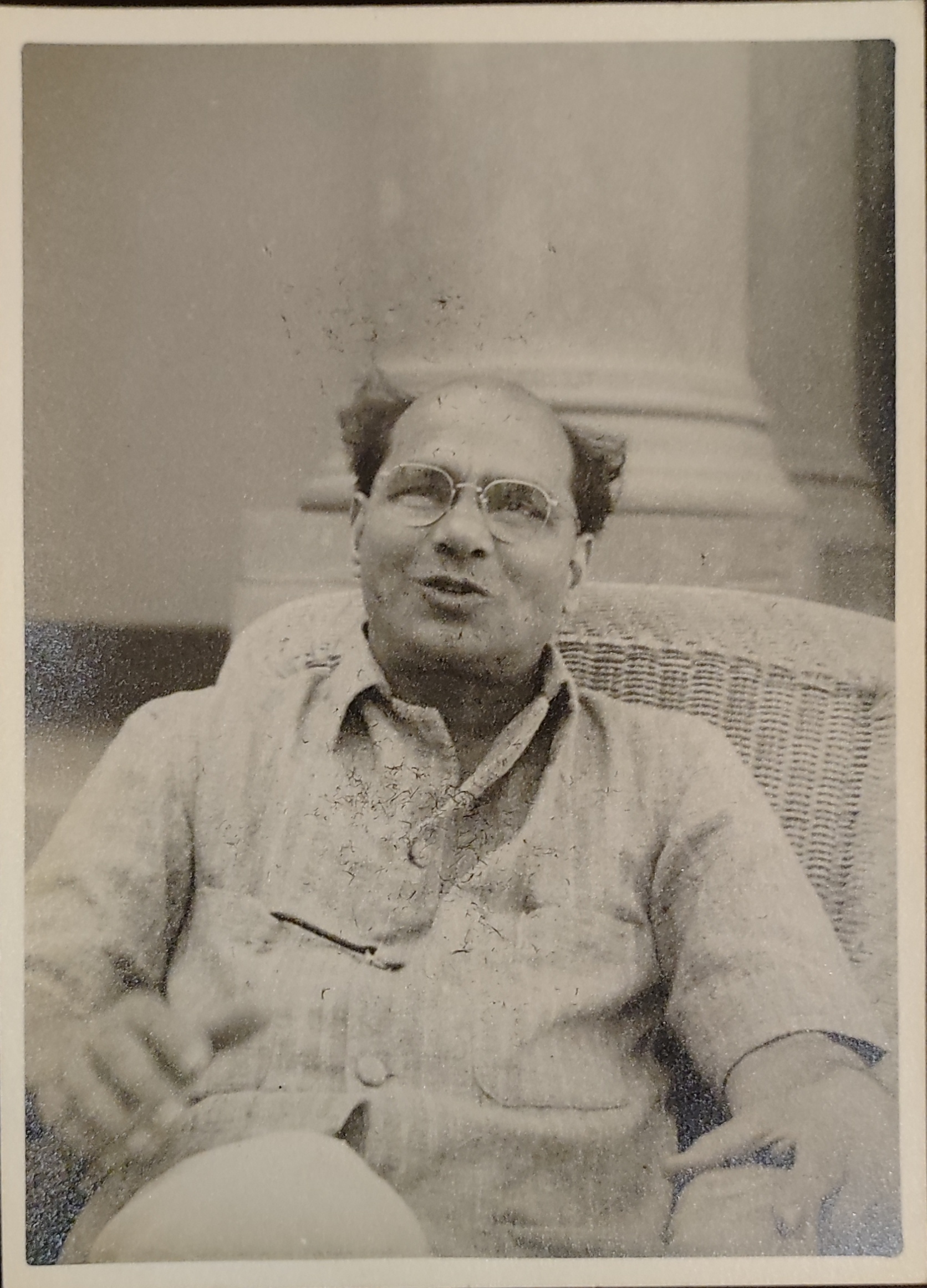
In a series of commentaries on the incident, Mahatma Gandhi condemned the assault on Tyagi. (See Young India, 13, 20, 27 October 1921 and 10 November 1921; Collected Works of Mahatma Gandhi, Volume 21, 1966 (CWMG), pp 284–5, 310–1, 312–3, 344–6, 406–7). A mass protest meeting presided over by Sayed Hassan Berni, Vakil against the Magistrate-directed assault on Tyagi was held at Bulandshahr attended by more than 4000 people. (Young India, 13 October 1921).
Describing the assault as a “crime against the nation”, Gandhi asked : “Could for instance the Lord Chief Justice of England assault a prisoner being tried before him and still retain his high office?” (Young India, 20 October 1921). The matter of the magistrate-directed assault on Tyagi figured in the United Provinces Legislative Council on 4 November 1921. Initially evasive answers from the Government regarding action taken against the magistrate led to further questioning of Government on 5, 16 and 17 November 1921 in the course of which the Government distanced itself from the magistrate’s action. The case was then transferred to the District Magistrate of Meerut and Tyagi, on being convicted and sentenced to two years’ imprisonment, was sent to Agra jail. Even after his release from prison, the seditious Tyagi would remain a marked man for the British regime which had by now identified him as a dangerous opponent. (See UP Legislative Council Debates, 19 December 1925). He became a close associate of Rafi Ahmed Kidwai, a senior politician in United province and was also known as a “Rafian”with other close associates of Kidwai.
Mahavir Tyagi was close to, and had been a jail companion of, the leading Indian nationalist MotiLal Nehru and helped resolved the difference between him and his son Jawahar Lal Nehru in 1920s (See Durga Das, India From Curzon to Nehru & After, London, 1969, pp 109–110).
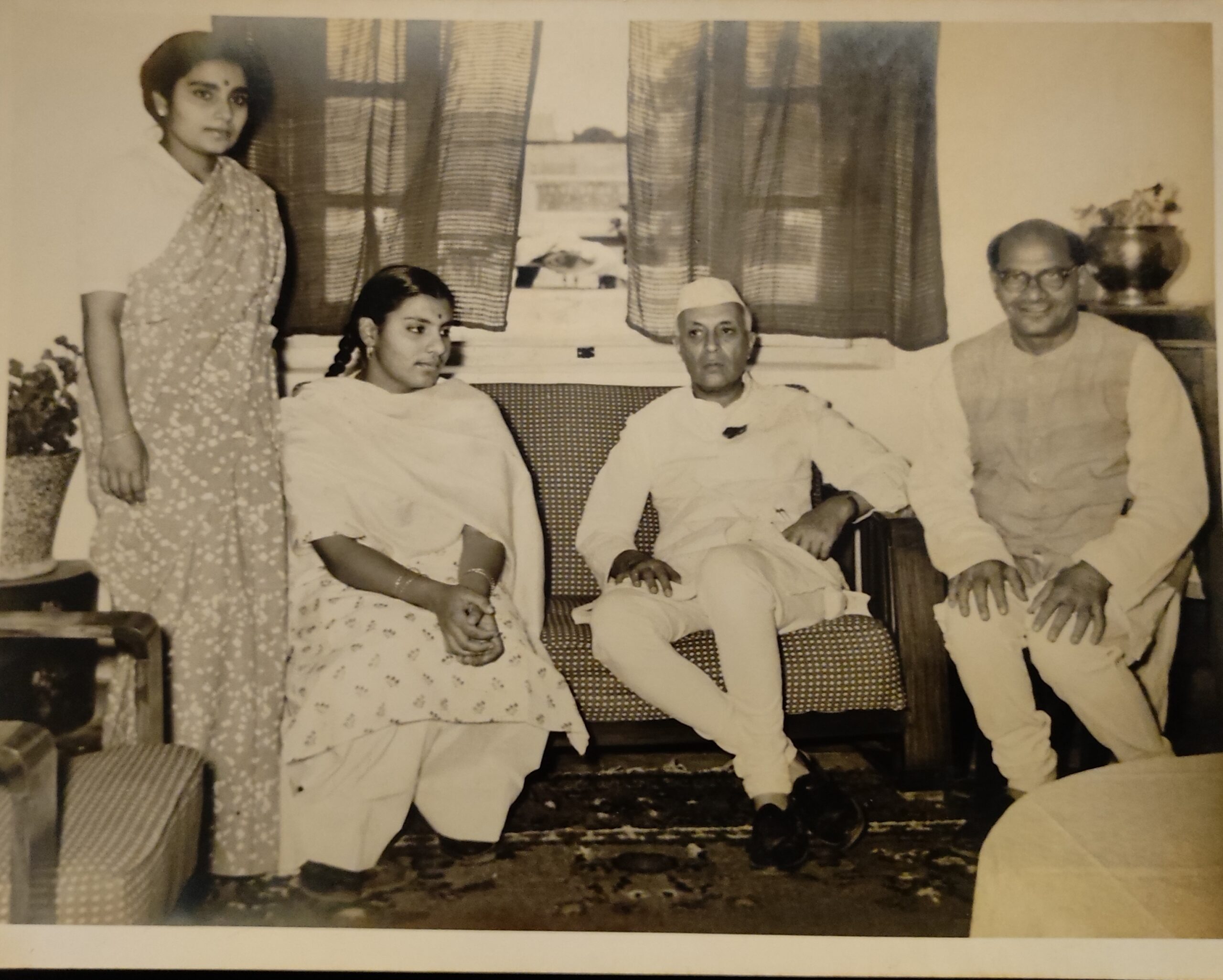
Mahavir Tyagi made Dehradun his political base in 1920s. He was President of the Dehradun District Congress Committee in 1931 (See Selected Works of Jawaharlal Nehru, Vol 5, p. 211n). After he had served out his sentence for participation in the Civil Disobedience Movement of 1930, he was arrested again in Dehradun on 17 January 1932 with the resumption of Civil Disobedience and sentenced to two and a half years’ imprisonment. During the 1930-31 he was the ‘Dictator’ of the civil disobedience movement in Dehradun working relentlessly amongst the poor, peasants and labourers of Dehradun and Garhwal hills. In the decade before Indian independence, he became a legislator in the United Provinces and in this capacity, he was, in 1939, a member of the Jaunsar-Bawar Enquiry Committee which heralded social and land reform in the tribal area of Janusar Bawar in Dehradun. The committee recommended, inter alia, occupancy rights in land for tenants and the prohibition of forced labour. When arrested in the Individual Satyagraha in November 1940, Tyagi was taken to Dehra Dun Jail where Jawaharlal Nehru was already lodged. In 1942, Tyagi and S K D Paliwal were arrested under the Defence of India Rules on 6 June, that is more than two months before the Quit India movement was actually launched; Rafi Ahmad Kidwai had been arrested even earlier on 12 May. (Selected Works of Jawaharlal Nehru, Vol 12, p. 344) In a speech at Bombay on 18 June 1942, Nehru condemned these arrests as “putting a hindrance to civil defence work”.(Idem) Three years later Nehru, on being transferred from Ahmadnagar Fort Prison to jails in the United Provinces in the summer of 1945, would see Tyagi again, then apolitical prisoner in Bareilly jail.

His wife Sharmda remained his political companion and looked after political work in dehradun during his incercerations. Sharmada was elected as a member of the United Province assembly from Dehradun in 1937. Jawahar lal Nehru himself came to campaign for her and Madan Mohan Malviya appealed to the voters in her favour. She used to tie her six month old daughter saroj on her back and used to campaign on horse back.
While Mahavir Tyagi himself adhered to Gandhian non-violence, Mahavir Tyagi had close contacts even among the “revolutionaries”, that is those who were not opposed to using violent means to overthrow the imperial state. These included Ashfaqullah, Ram Prasad Bismil,Sachindra Nath sanyal,Prem Kishan Khanna and Vishnu Sharan Dublish.
Sachindranath Sanyal writes in his autobiography, (Bandi Jivana, p. 253), that in the 1920s, Dublish had introduced him to Mahavir Tyagi who in turn put him in touch with Ram Prasad Bismil and Ashfaqullah.(See also N C Mehrotra and Poonam Sharma, Uttar Pradesh Mein Krantikari Aandolan Ka Etihas, p. 62 and p. 67, note 8)
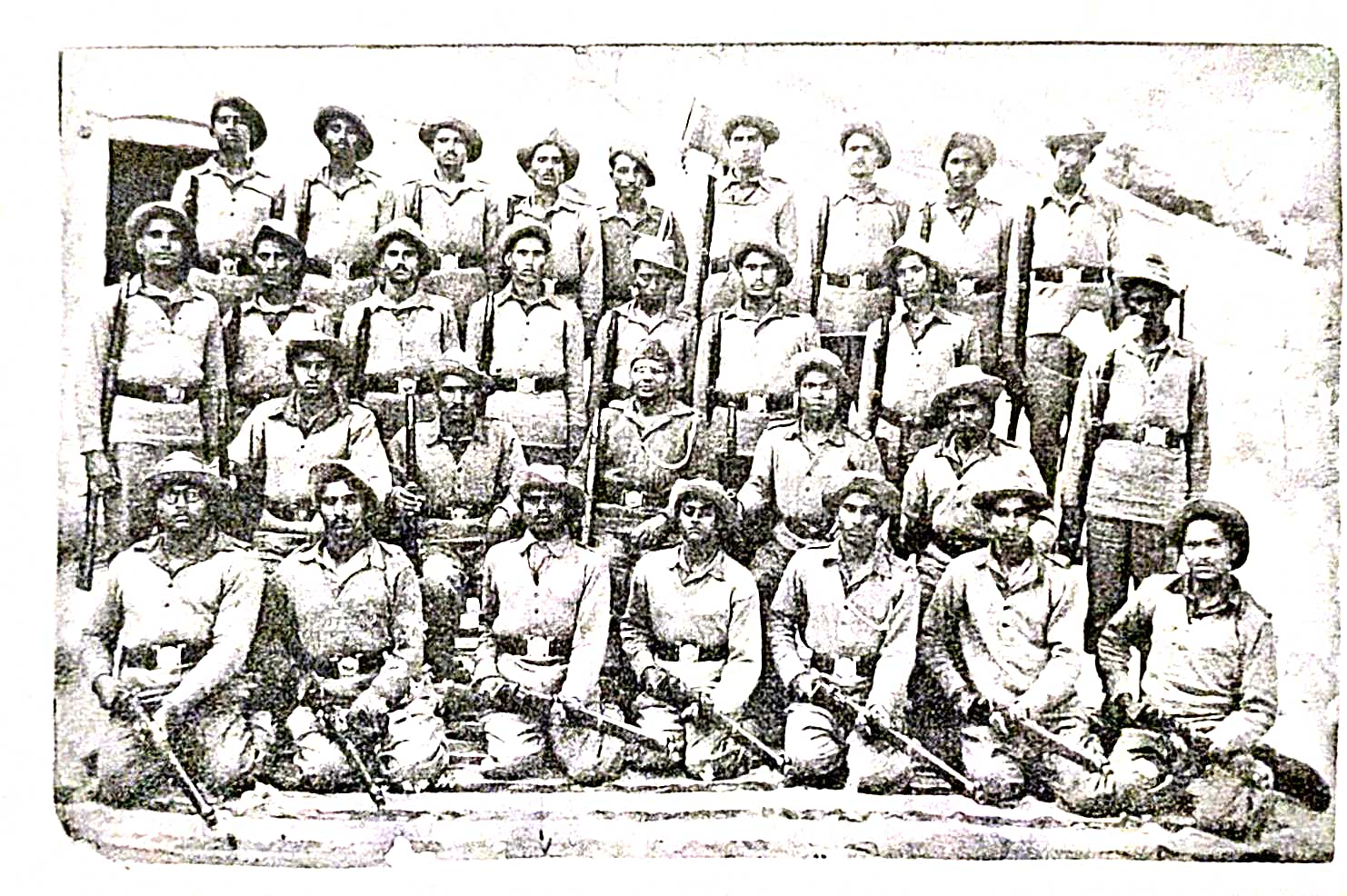
When riots broke out in the Indian subcontinent after its partition in 1947, Tyagi, taking inspiration from Gandhi, staked his own life to help save Muslims in his home state and to bring peace. (Choudhry Khaliquzzaman, Pathway To Pakistan, Lahore, 1961, p. 400; see also Ansar Harvani, Before Freedom and After, New Delhi, 1989, p. 100 and Qazi Jalil Abbasi’s account in Bipan Chandra , The Epic Struggle, New Delhi, 1992, p. 60).
Mahavir Tyagi took over the local administration during the communal rioting after he found that it was ineffective in controlling the situation and restored public order. With the help of like minded workers, he donned the police uniforms to save innocent lives. His force was known as ‘Tyagi Police’ even in United Province Gazette. His peace efforts were appreciated by Hindus and Muslims.( see Ajit Prasad Jain, Rafi Ahmad Kidwai : A Memoir of his Life and Times, Bombay, 1965, pp 73–74).
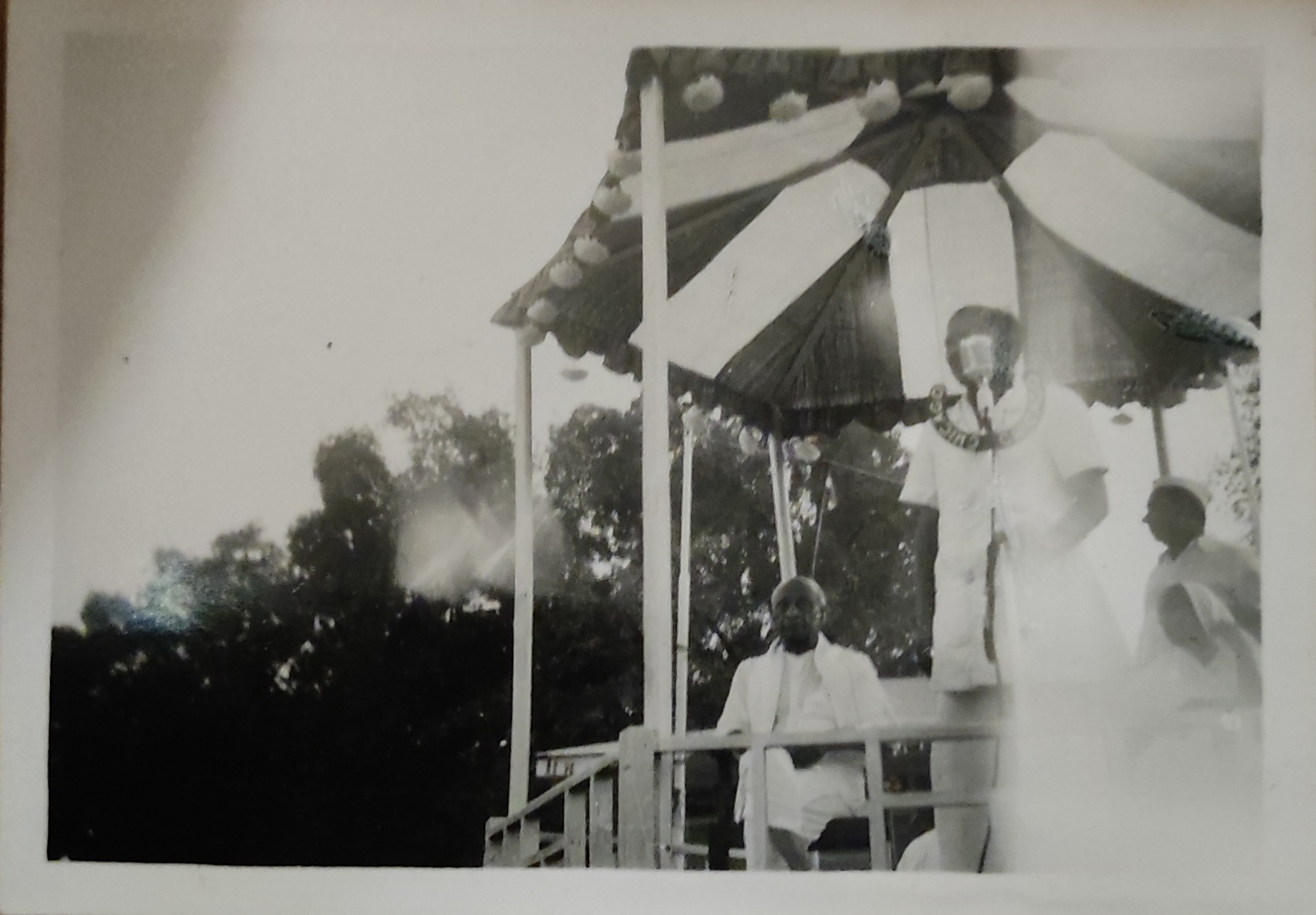
He was also very close to Vallabh Bhai Patel, another Congress and Gandhian stalwart and his daughter Maniben, who both held him in high esteem.
Tyagi’s political activities extended also to the Tehri Garhwal region. He had taken a keen interest in the movement for democratic rights there and played a prominent role also in support of the movement in Tehri State for merger with independent India.( See, for example, Ajay Singh Rawat, Garhwal Himalayas : A Historical Survey, New Delhi, 1983, p. 205)
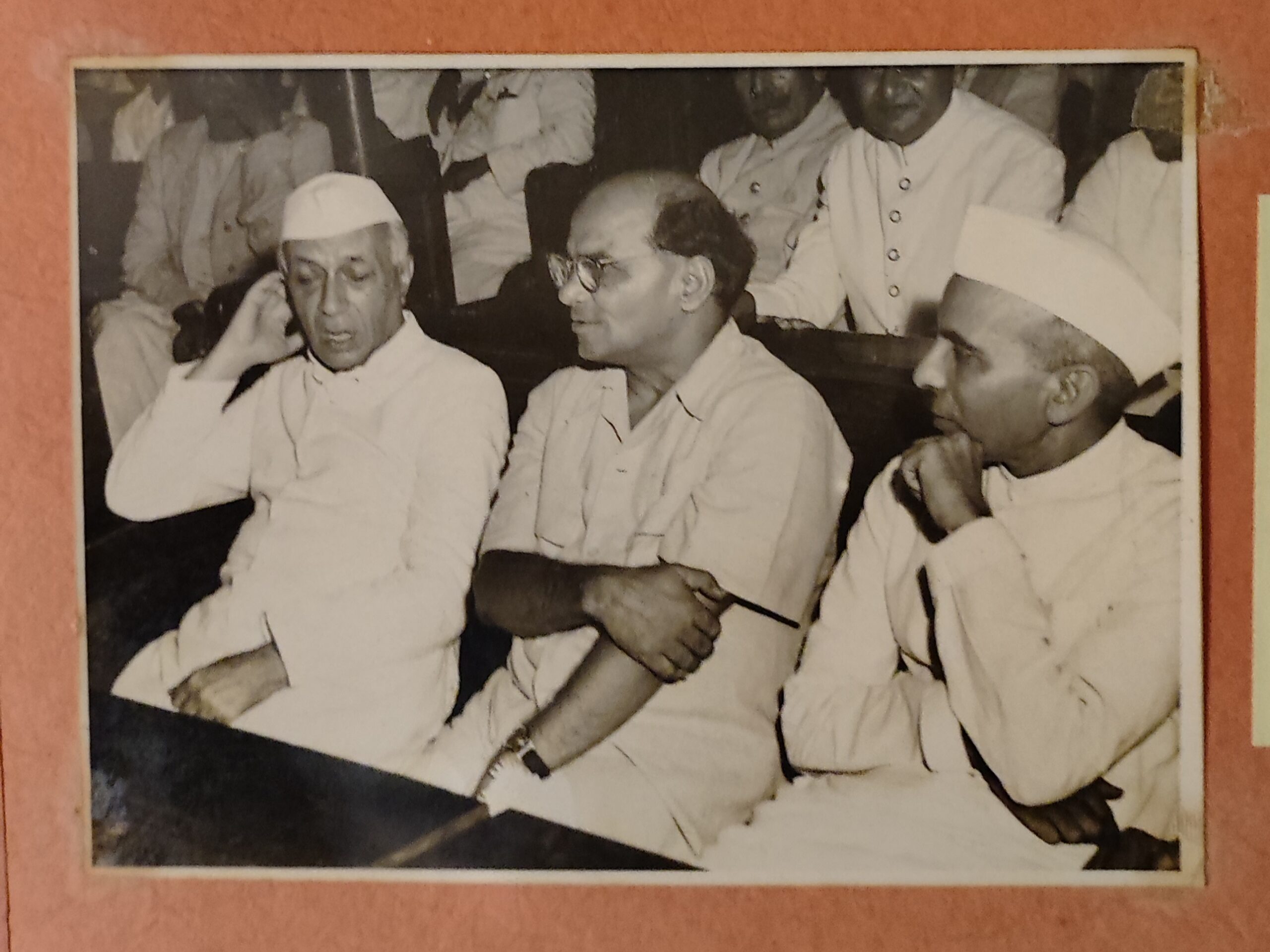
Mahavir Tyagi as a member of the Constituenct Assembly of India stood strongly against unsafeguarded Preventive Detention laws and against suspension of fundamental rights in emergency situations. He stood for a fair and independent judiciary. “The seat of justice is the Seat of God”, he had famously told the Constituent Assembly.(Granville Austin, The Indian Constitution : Cornerstone of A Nation, Oxford University Press, Bombay, 1966, p. 164)
After independence of the country, Tyagi remained a member of the Provisional Parliament (1950–52), and a member of First, Second and Third Lok Sabha(1952–67) fromDehradun. He was a Minister for Revenue & Expenditure in the Nehru Council of Ministers (1951–53). In this capacity he introduced the First Voluntary Disclosure Scheme, known as the ‘Tyagi Scheme’, primarily, as he put it, to bring into the open incomes which had not been revealed to the alien government prior to independence. While in the Finance Ministry, he earned a reputation as a strict economiser. His practical, man-of-the-soil approach was reflected also at the first meeting of the National Development Council, held in Delhi on 8 and 9 November 1952, where Tyagi suggested that “manual work should be made part of the daily curriculum of education.”
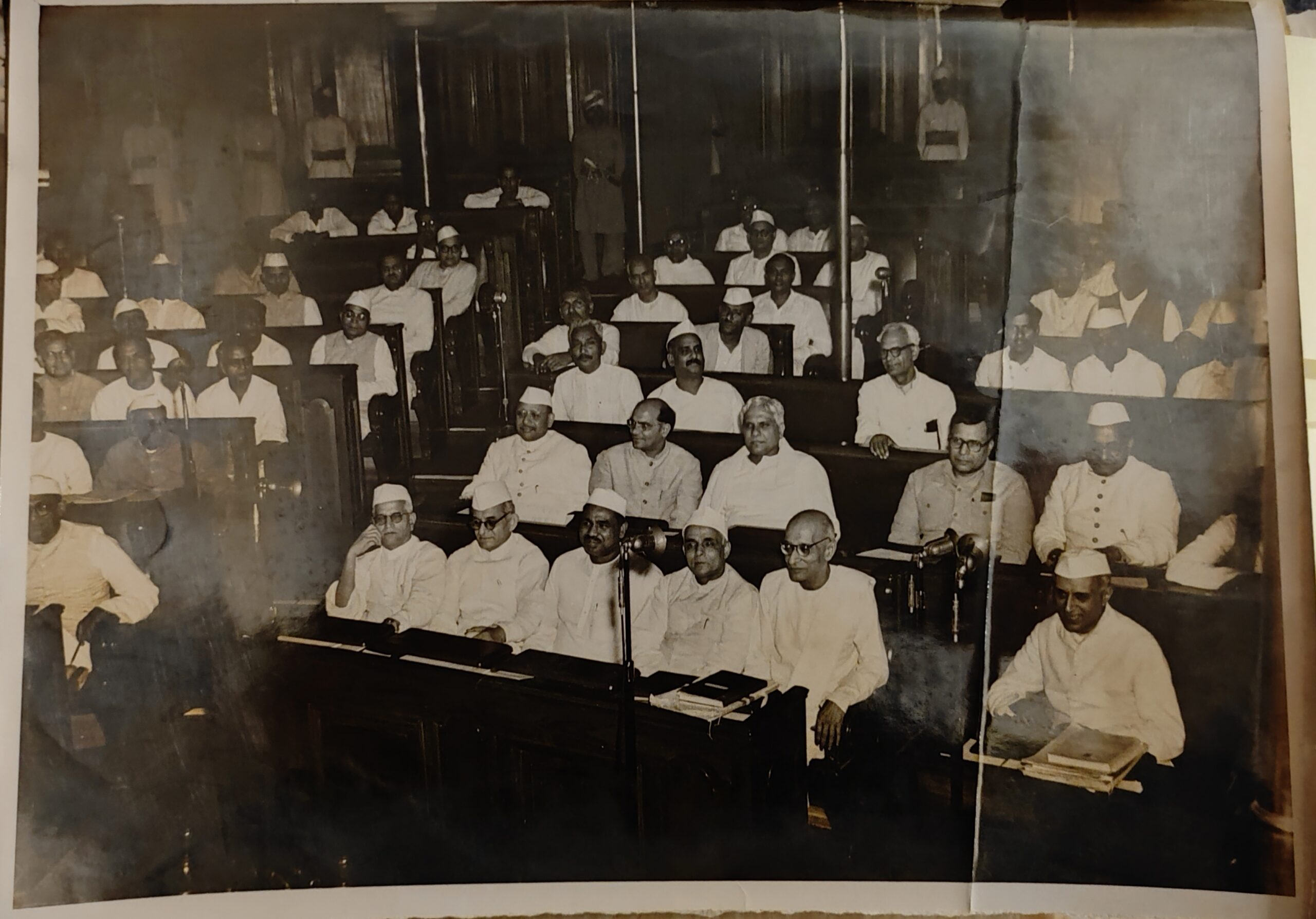
He was instrumental in bringing in Oil and Natural Gas Commission (ONGC), Indian institute of Petroleum (IIP) and Lal Bahadur Shastri Academy of Administration to Dehradun valley.
Later, Mahavir Tyagi became Union Minister for Defence Organisation (1953–57). In this capacity, he encouraged the process of indigenisation in production as also the complete Indianisation of Indian armed forces. He inaugurated ‘I N S Garuda’, the air arm of the Indian Navy. He also initiated the project for the manufacture of HF-24, which would be the first fighter plane to be produced by a developing country. His statement in October 1955 that India would purchase defence equipment “from any country, wherever it suits her” and that India was “not tied down to any country or bloc”, attracted attention around the world.(“India Declares Intention to Buy Arms Anywhere”, The Canberra Times, 6 October 1955). In policies and in the implementation of laws and rules, Tyagi emphasised the human element, advising officers “not to forget the human element when interpreting the rules and regulations”. General B M Kaul records in his memoirs that as Minister of Defence Organisation, Tyagi opposed policy proposals involving draconian measures in the tribal areas of India’s North-East.( See B M Kaul, The Untold Story, New Delhi, 1967, p. 162 ) Tyagi also gave instructions for recruitment of Muslims in large numbers in theIndian Army as the proportion of Muslims in the Army had fallen after partition of the country.

Known for his independence, Tyagi opposed, even while he was a minister, the reorganisation of Indian states on a linguistic basis which was, however, ultimately carried out in 1956.(Indian Express, Madras, 24 November 1955) He welcomed the victory of the Communist Party of India in Kerala state in the General Elections of 1957 (Leader, Allahabad, 2 April 1957) Later, Tyagi opposed the decision to dismiss the Communist government led by E M S Namboodiripad in Kerala at the end of the fifties, saying that this would establish a wrong precedent. Tyagi had warned at the time “that the Congress Party was ‘digging its own grave’ by aligning with caste and communal forces”. (B D. Dua, Presidential Rule in India 1950–1974 : A Study in Crisis Politics, New Delhi, 1979, p. 112) Tyagi sought also to inculcate independence in others : He was critical of the tendency among political workers obsequiously to touch their leaders’ feet and lashed out also at some senior bureaucrats who, he observed, had started touching ministers’ feet. (Touching of Leaders’ Feet : Tyagi Deplores Tendency, The Tribune, Ambala, 26 June 1959). At the 1957 session of the All India Congress Committee (AICC), Tyagi suggested abandoning the practice of the Congress President nominating all the members of the Congress Working Committee. Though his suggestion that 10 out of the 21 Working Committee members ought to be elected was not accepted, Jawaharlal Nehru agreed with Tyagi that the same members ought not to be re-nominated year after year. (Economic Weekly, 7 September 1957)
Tyagi was Chairman of the Direct Taxes Administration Enquiry Committee (1958–59) and in that capacity paved the way, along with the Law Commission, for the Income Tax Act, 1961.
Aksai Chin debate

On 5 December 1961, a year before the Sino-Indian war, Tyagi famously criticized Nehru’s statement in the Indian Parliament. Nehru had commented : “But, nevertheless, the fact remains that this area is a most extraordinary area in the world so far as terrain is concerned. At that rate, no tree grows anywhere in this wide area — there may be some shrubs.”. Tyagi retorted, pointing to his own bald head: “No hair grows on my head. Does it mean that the head has no value?”. [Discussion, 5 December 1961, Lok Sabha Debates, Vol. LX, 2–8 December 1961, cited in Selected Works of Jawaharlal Nehru, (Second Series), Volume 73, p. 571] A tense situation that had been developing in the House on the subject of the border conflict was averted as the House dissolved in laughter in which Nehru also joined. Tyagi continued to enjoy an affectionate relationship with Jawaharlal Nehru. He served as Chairman of the Public Accounts Committee of Parliament (1962–64).

In April 1964, a month before Nehru’s death, Tyagi rejoined the Government as Cabinet Minister in charge of Rehabilitation. For rehabilitating the people coming from East Pakistan, he formed a “labour Corps’ and worked to resettle them in Andaman and Nicobar islands. After the 1965 war with Pakistan and subsequent ‘Tashkent Agreement’, Tyagi resigned in protest against return of Hajipir and Titwal areas back to Pakistan.
In the General Elections of 1967 which saw a popular backlash against the Congress Party, Tyagi lost to an independent candidate backed by an anti-Congress combination of parties.
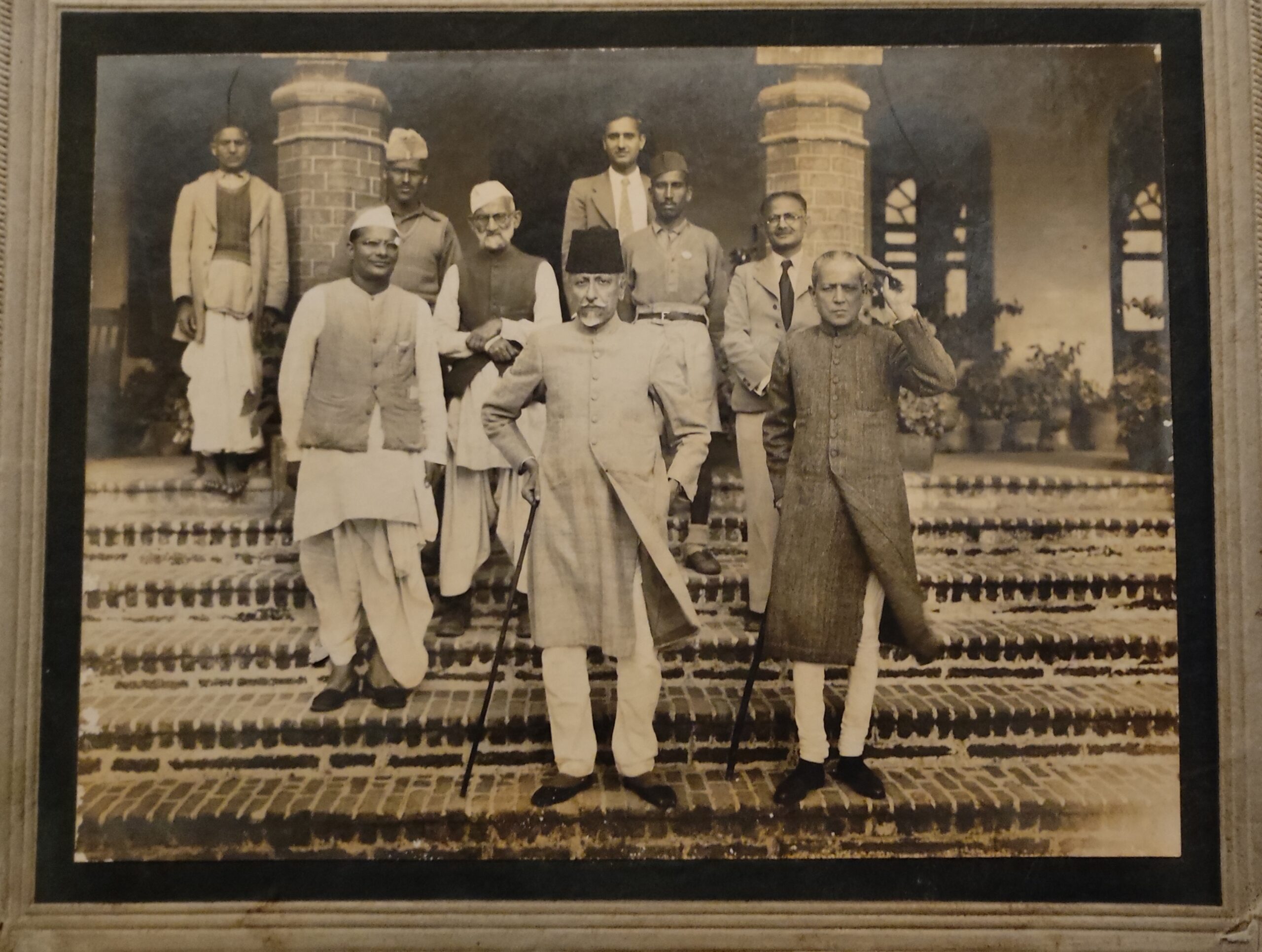
In 1968, Mahavir Tyagi became the Chairman of the Fifth Finance Commission. After the split in the Congress in 1969, Tyagi stayed with the Congress (O), the organisational wing of the party. In 1970 he was elected to the Upper House of Parliament, the Rajya Sabha from Uttar Pradesh and led the Congress(O) in the House till he retired in 1976. Tyagi’s being in the Congress(O) did not prevent him from being critical of the movement led by Jayaprakash Narayan in 1974–75. He was equally critical of the Emergency imposed by then Prime Minister Indira Gandhi in 1975. Mahavir Tyagi died in New Delhi on 22 May 1980. He was survived by three daughters.
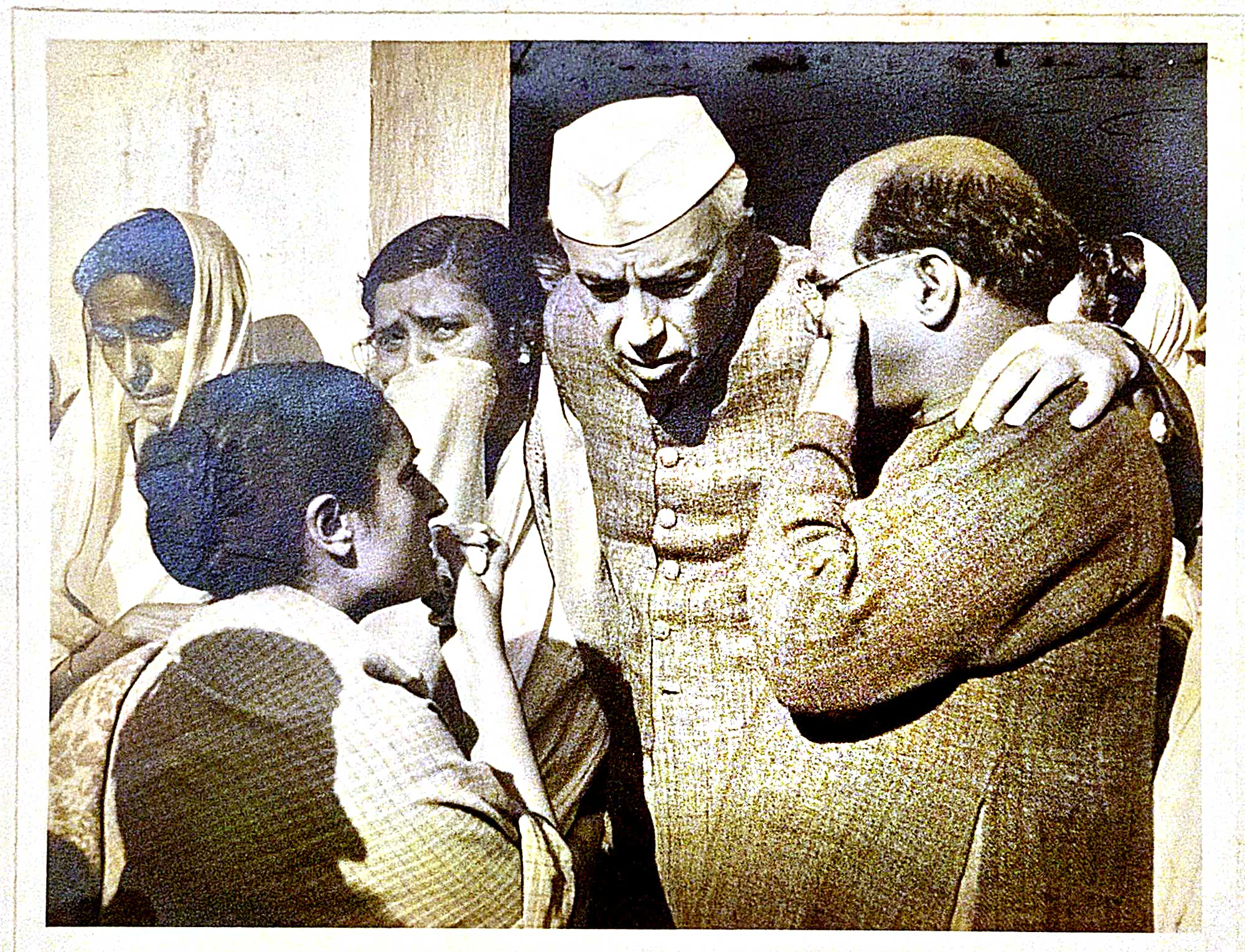
Mahavir Tyagi, a popular figure, had friends across political parties and was widely admired for his integrity, outspokenness, ready wit and sense of humour.
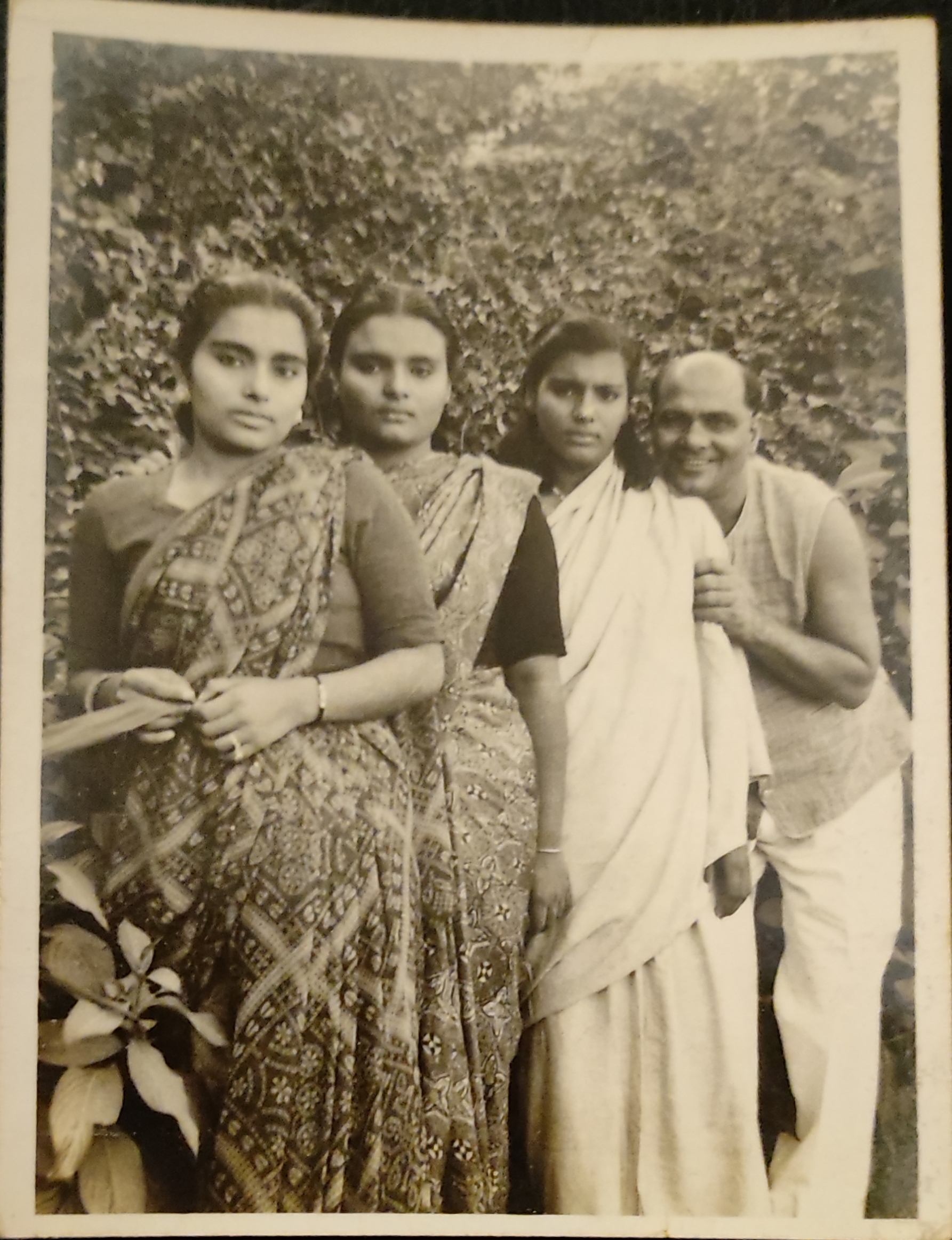
Prior to independence, Mahavir Tyagi had written a booklet on proportional representation. His memoirs in Hindi were published in the 1960s in two volumes : (i) Ve Kranti Ke Din and (ii) Meri Kaun Sunega. These volumes have now been combined in one and, along with some other unpublished articles by Tyagi, have been published under the title Azadi Ka Andolan: Hanste Hue Ansu (Kitab Ghar, 24 Ansari Road, Daryaganj, Delhi).




